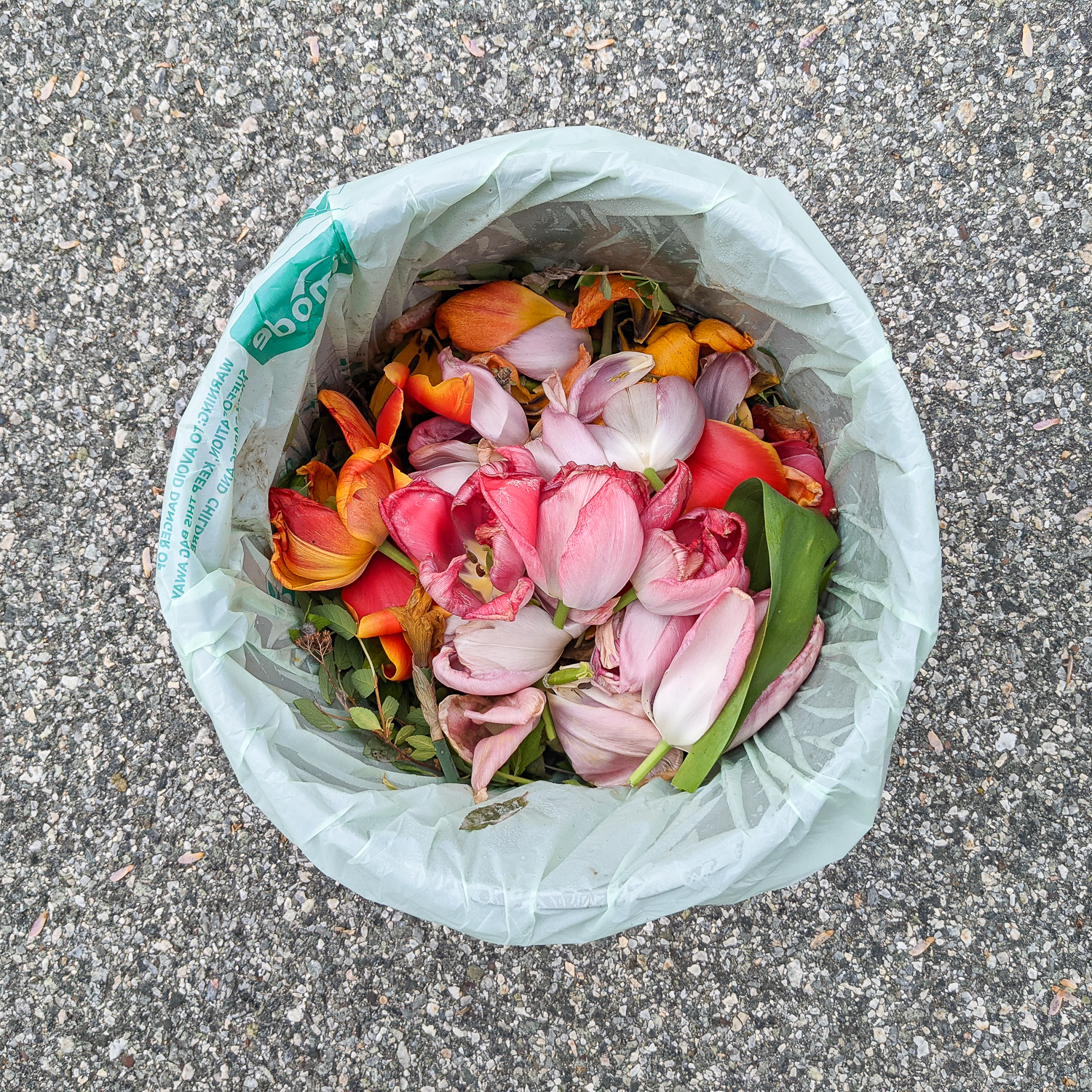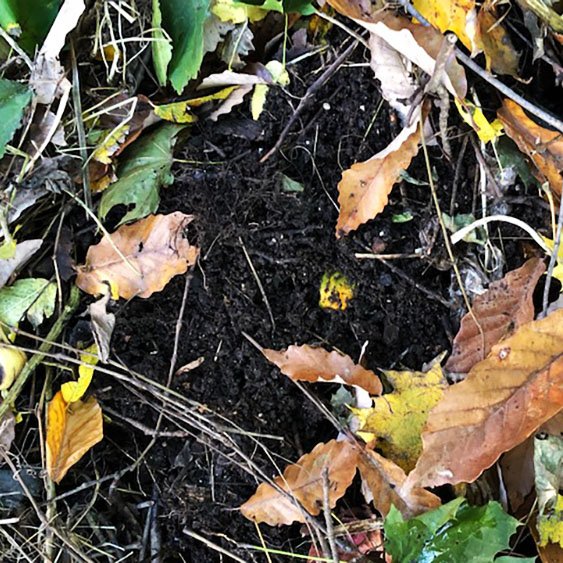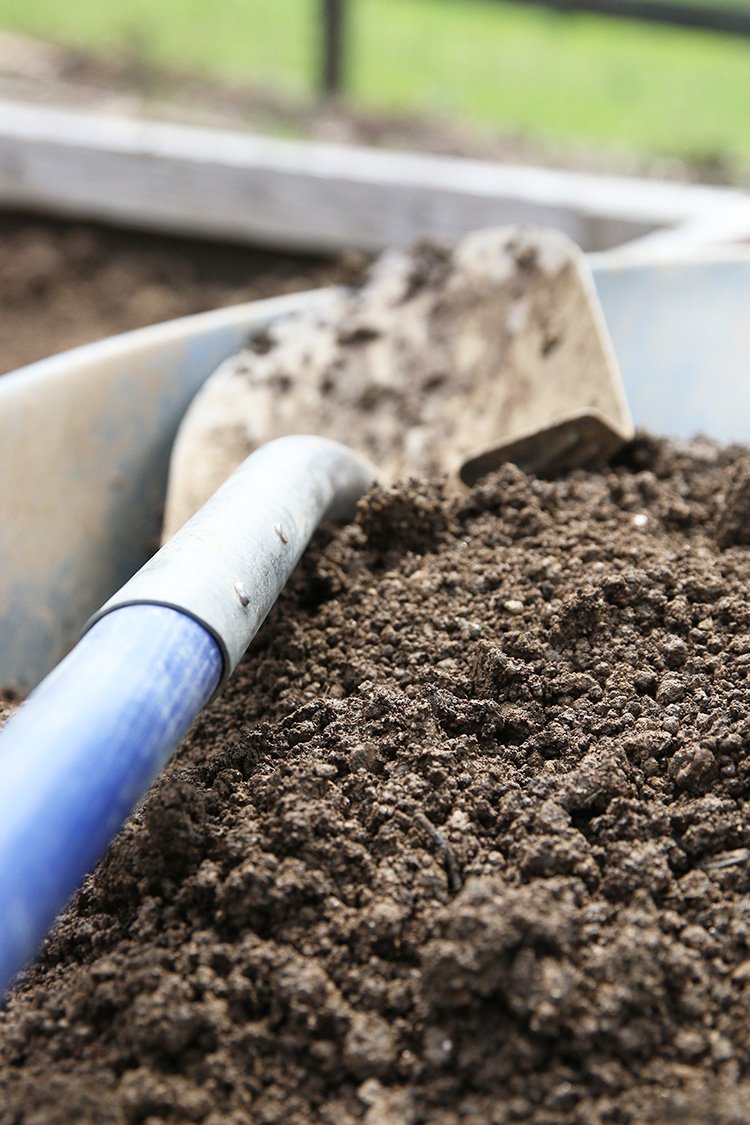7 Easy Tips to Manage the Charcoal Filter For Your Compost Container
My single best tip for home composters – make sure you have the right charcoal filter for your compost container. Let’s dive into a few tips to make sure you find the right one and manage it properly to keep odors in the bucket and pests out of the bin. Only fresh-smelling, clean kitchens for this crew!
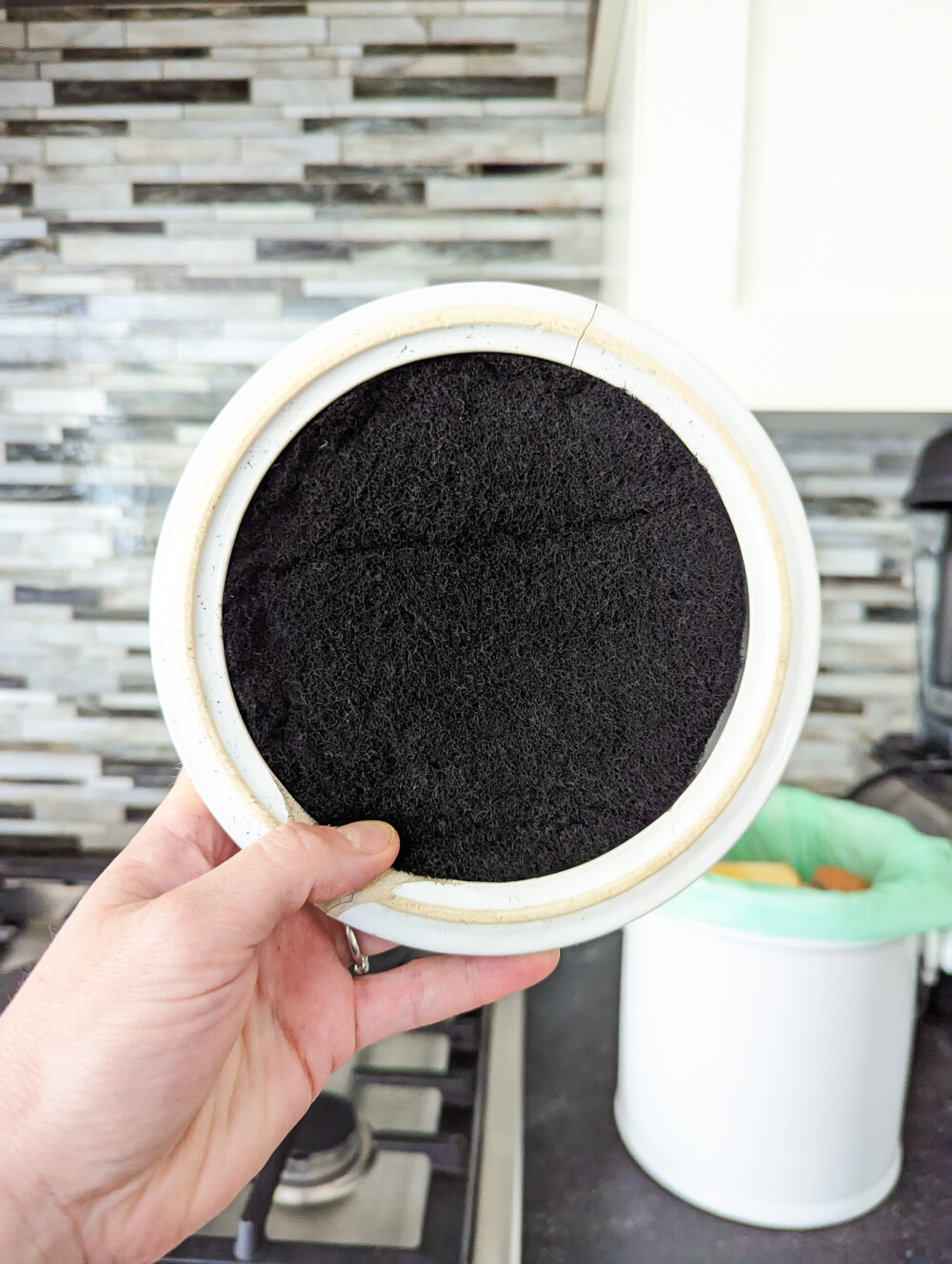
In all the years I’ve composted, there are a few tools that stand out as the most important to make composting clean, easy, and effective. When it comes to storing food scraps before I take them out to the compost bin or bucket, the charcoal filter for your compost container is key. It’s a simple yet effective element of a countertop bin to prevent stinky scraps or pesky fruit flies from infesting my kitchen.
It’s not necessary to store your food scraps in a countertop bin. There are lots of ways to store food scraps for composting, including in the freezer or a bowl for a few hours before dumping them into the larger compost pile. But many people (including our family) rely on a countertop compost bin to collect scraps and make the process of composting fit more seamlessly into our everyday routines.
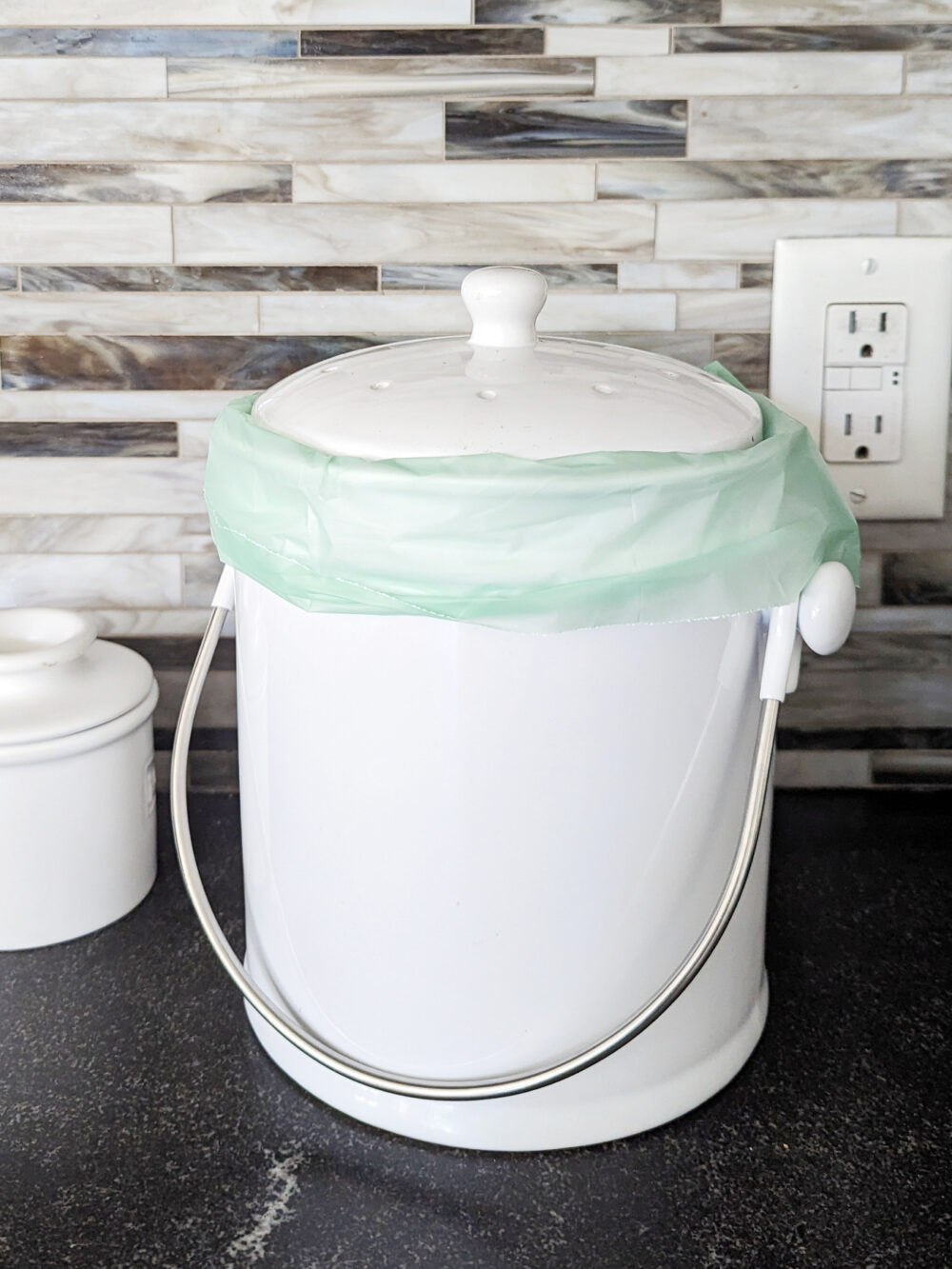
Charcoal filters in compost bins or pails help absorb and control odors. I always recommend people choose a bin with a filter if they’re thinking about composting at home. Having the right filter also matters. Here are some tips for managing charcoal filters in your compost bin.
7 Tips to Find the Right Charcoal Filter For Your Compost Container
Understand the purpose of the charcoal filter
Charcoal filters are designed to adsorb odorous compounds, helping to reduce unpleasant smells that may arise from decomposing kitchen scraps. The charcoal acts as a natural filter, capturing and neutralizing the odors. This prevents the odors from seeping into your kitchen which can attract pests and just be annoying.
Choose the right charcoal filter
Ensure that you select the appropriate size and shape of charcoal filter for your compost bin or pail. Check the manufacturer’s instructions or guidelines to find compatible filters for your specific container. Charcoal filters are typically available as replacement parts for specific compost bin models.
If you can’t find a charcoal filter that fits inside the lid of your countertop compost bin, you can cut down one that’s a little too large. They are very easy to trim with everyday scissors.
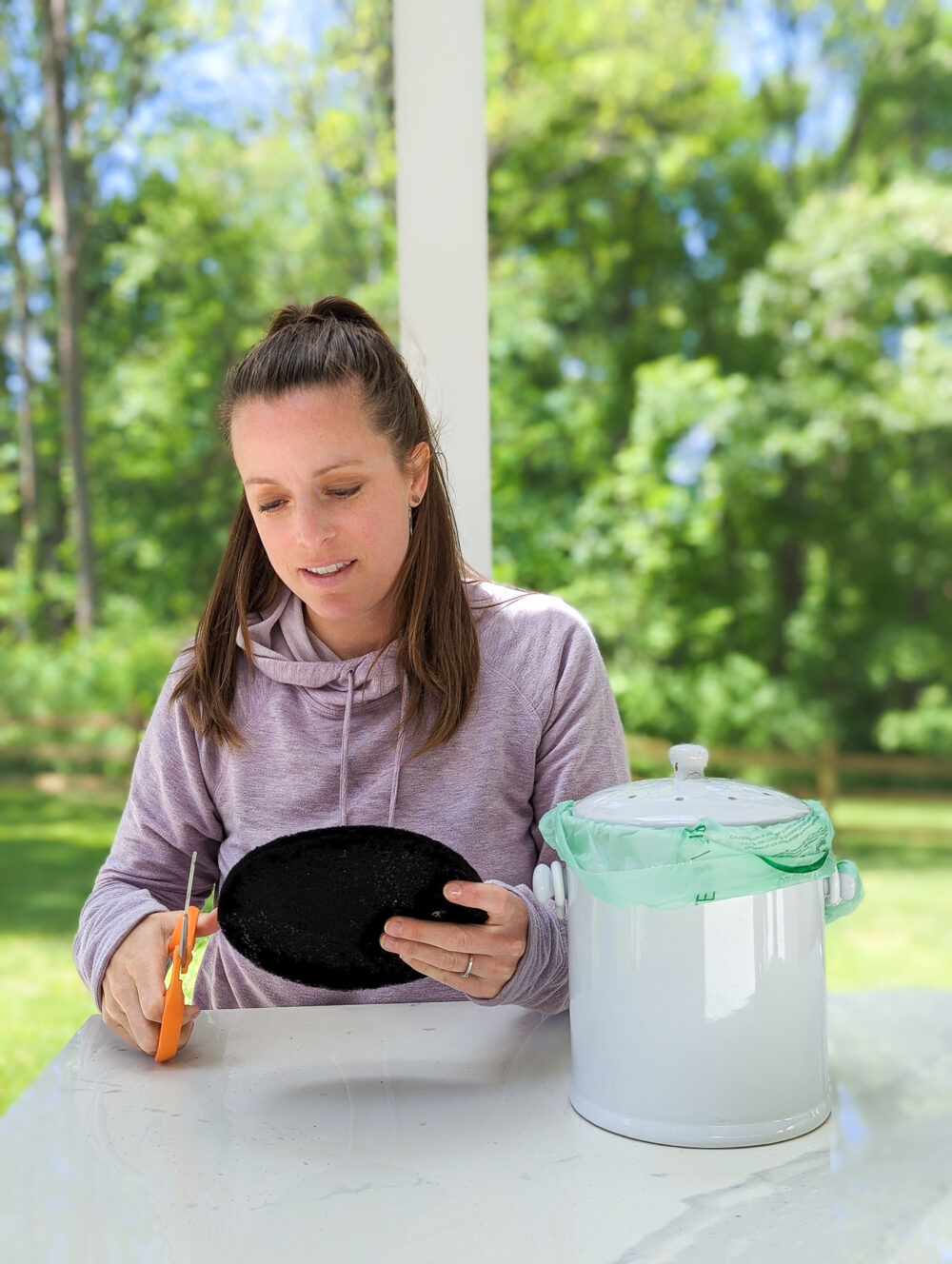
Follow charcoal filter replacement recommendations
Charcoal filters have a lifespan and effectiveness, so it’s important to follow the manufacturer’s recommendations for replacing them. The frequency of replacement may vary depending on usage and the type of filter used. Typically, filters are replaced every few months or when they become saturated and lose their effectiveness.
I replace my filter every 3-6 months depending on how much we use the bin. I tend to flip it once before tossing it to make it last a bit longer. The charcoal filter can also get gross more quickly if food scraps touch the filter. Thus, emptying the bin before it overflows helps elongate the life of the charcoal filter.
Store charcoal filters properly
If you purchase replacement charcoal filters in advance, store them in a cool, dry place away from moisture and strong odors. This will help preserve their absorption properties and ensure they remain effective when needed.
We store our extra filters in a drawer under our counter with other kitchen accessories. I keep them in the plastic bag in which we receive them, and they last for years when I buy them in bulk.
Clean the charcoal filter housing
Most compost bins or pails have a housing or compartment where you insert the charcoal filter. I highly recommend using a countertop compost bin with this feature. It’s a good practice to clean this space periodically to remove any residue or buildup that may affect the filter’s performance. Use mild detergent and water, rinse thoroughly, and allow it to dry completely before inserting a new filter.
Use additional odor control methods in your food scrap bin
While charcoal filters are effective at reducing odors, you can enhance their performance by combining them with other odor control methods. For example, lining the bin with compostable bags or paper can help absorb moisture and capture odors. Additionally, regularly emptying the bin will minimize odors.
Check for compatibility
Before using charcoal filters, confirm that they are compatible with the composting system you have in place. Certain composting methods, such as worm composting (vermicomposting), may not require or benefit from the use of charcoal filters. Be sure to follow the specific guidelines for your composting setup.
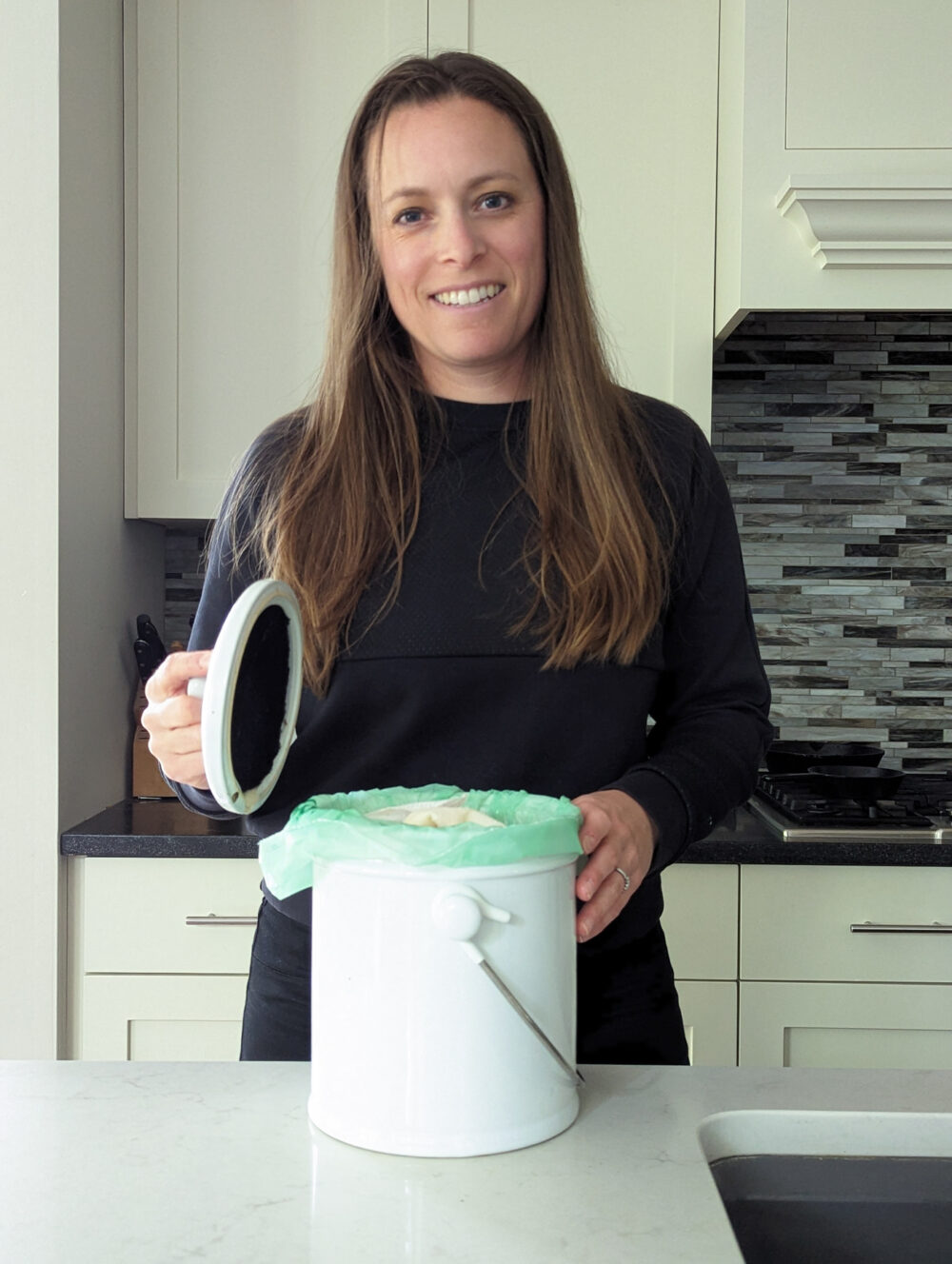
Charcoal filters are not a foolproof solution but they make a world of difference in terms of managing your food scraps in your kitchen before they make their way to a compost pile. A charcoal filter in your countertop compost bin in conjunction with regular maintenance can easily and effectively control odors in your composting system.
If you like this post about a charcoal filter for your compost container, you might also like:
Your Composting Food Scraps Shouldn’t Smell and Here’s How
Electric compost kitchen bins: More glorified trash compactor than food waste silver bullet

Jen Panaro
Jen Panaro, founder and editor-in-chief of Honestly Modern, is a self-proclaimed composting nerd and advocate for sustainable living for modern families. To find her latest work, subscribe to her newsletter, Stepping Stones.
In her spare time, she’s a serial library book borrower, a messy gardener, and a mom of two boys who spends a lot of time in hockey rinks and on baseball fields.
You can find more of her work at Raising Global Kidizens, an online space to help parents and caregivers raise the next generation of responsible global citizens.


